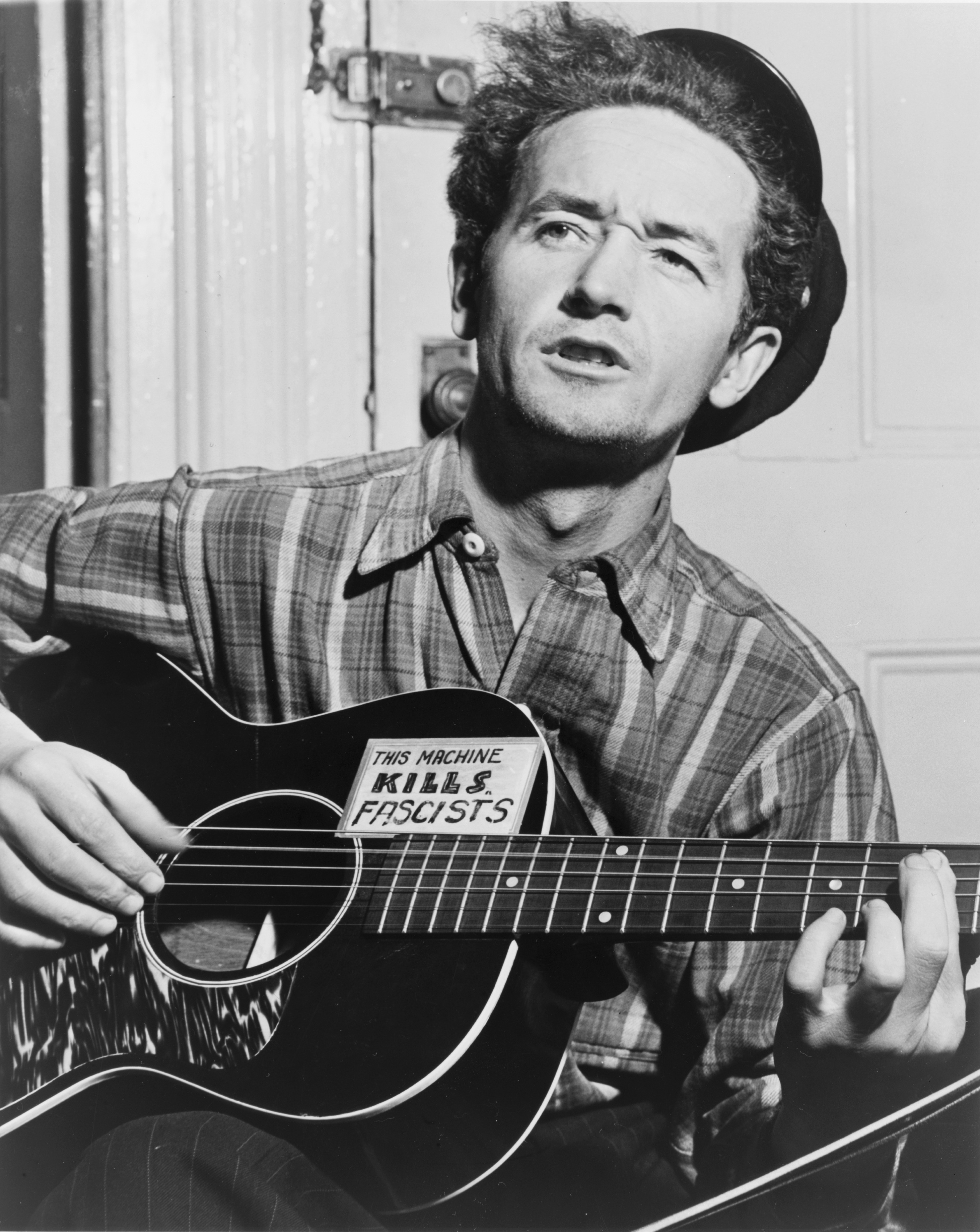Every couple of months I read on Twitter another denunciation from someone in the Native American/Indigenous Studies community of Woody Guthrie’s famous song, “This Land is Your Land.” It’s a “obvs hella-colonial” song, the critique goes, because Guthrie’s claim that the entire continent “from California, to the New York Island” belonged to you and me ignored the original Native American owners of North America. As such, Guthrie erased the reality of Native Americans’ antecedent claims to the continent and, in effect, whitewashed the long history of American Indian dispossession in the United States.
As scholars we need to counter the colonialist project of erasing native peoples and their histories from the land, but this critique of Guthrie is facile at best. Those who teach and write about Native American history, those of us who have worked with these communities in their present-day struggles to regain control of their ancestral lands, have bigger problems than a 75-year-old folk song.
Here are the full lyrics to the song:
This land is your land This land is my land
From California to the New York island;
From the red wood forest to the Gulf Stream waters
This land was made for you and Me.As I was walking that ribbon of highway,
I saw above me that endless skyway:
I saw below me that golden valley:
This land was made for you and me.I’ve roamed and rambled and I followed my footsteps
To the sparkling sands of her diamond deserts;
And all around me a voice was sounding:
This land was made for you and me.When the sun came shining, and I was strolling,
And the wheat fields waving and the dust clouds rolling,
As the fog was lifting a voice was chanting:
This land was made for you and me.As I went walking I saw a sign there
And on the sign it said “No Trespassing.”
But on the other side it didn’t say nothing,
That side was made for you and me.In the shadow of the steeple I saw my people,
By the relief office I seen my people;
As they stood there hungry, I stood there asking
Is this land made for you and me?Nobody living can ever stop me,
As I go walking that freedom highway;
Nobody living can ever make me turn back
This land was made for you and me.
Guthrie wrote the song after hearing Irving Berlin’s “God Bless America,” a patriotic anthem that borders on the jingoistic. (If you want a song that celebrates an “America: Love It or Leave It” ethos, this ought to be your target). Guthrie wrote during a period in American history when the economy had failed catastrophically, where millions of people were out of work, and federal efforts to provide relief, recovery, and reform, as radical as they were for the time, did not fundamentally challenge the basic structures of American capitalism.
Guthrie stood against the injustices in American society, the exploitation of labor, the impoverishment of hard-working, ordinary people He stood against the selfish rich, those who gamed a system already rigged in their favor. This was protest music of the first order.
So, yeah, you can hate Guthrie’s lyrics if you want, but as scholars we have an obligation to read deeply, honestly, and thoroughly. Unlike, say, Fox News, we are not allowed as scholars to take words out of context, not if we are to claim that we are hard-working, honest, and open-minded in our approach to the past. And as citizens, we could use more voices like Guthrie’s, willing to denounce the injustices of a system that seems to spiral farther and farther away from its expressed highest ideals every day.

